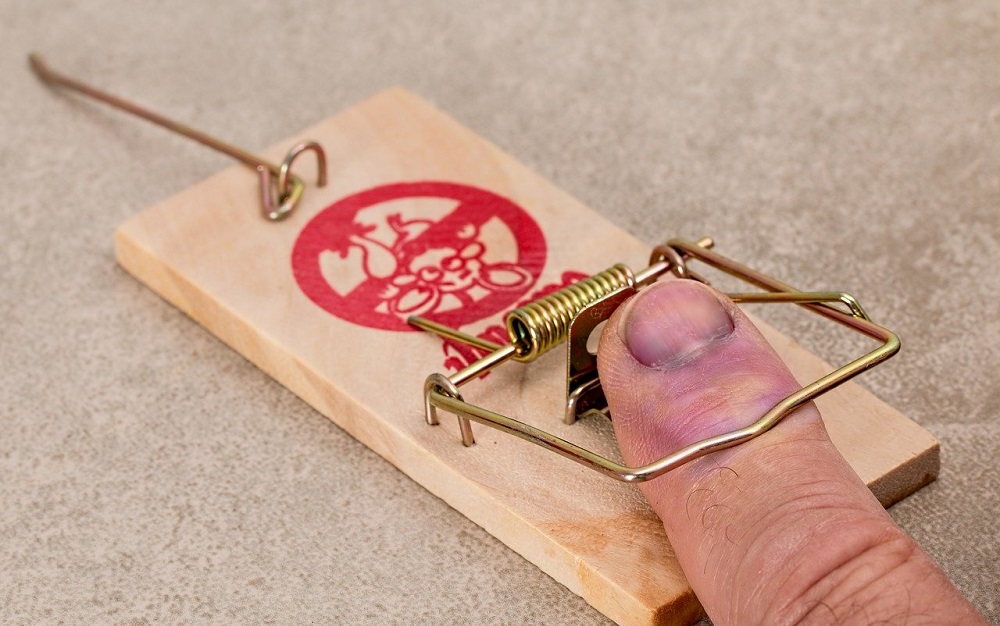
Self-sabotage occurs when that critical inner voice gets in the way of your success.
Are you your own worst enemy? The world places many obstacles on your journey to success, but none as big as the ones you create yourself. Self-sabotage involves succumbing to behaviors, habits, and thought patterns that keep you from achieving what you desire most in life. Self-sabotaging beliefs and behaviors can feel hard-wired in you that you’re not smart enough or driven enough to succeed.
It can feel almost impossible to unravel such beliefs. But, thinking patterns are just programming, and you can overcome self-limiting behaviors with time and effort.
Let’s unpack what might be instigating such self-destructing behaviors.
The Why Behind Self-Sabotage
“Why do I keep doing this?”
“Why does this keep happening to me?”
How many times have you set goals and resolved to improve your habits, but you never seem to get around it? If this sounds like you, you could be sabotaging yourself. And you must understand why you do it if you’re to overcome this problem.
Here’s a closer look at some of the big contributing factors.
1. Low self-worth
You feel undeserving of success. Because you’re not fond of yourself, you behave in ways that reaffirm the negative beliefs you hold about yourself. You’re subconsciously looking for ways to prove your inner-critic right.
It’s a perfect example of cognitive dissonance. Your actions will always align with your beliefs and values. So, you must change your thoughts first if you’re to overcome your self-sabotaging ways.
2. A need for control
Sometimes, self-sabotage is self-preservation. It’s a fear of failure, and a fear of success all rolled into one. Take procrastination, for example – it’s often rooted in perfectionism and a fear of failure. You’re so afraid of performing poorly that you never get around to starting that project.
And when you do and perform poorly? Then, it’s because you didn’t get to it soon enough. To feel in control, you engage in avoidance behaviors. In this case, it’s important to recognize that nothing is perfect the first time around. In fact, there’s no such thing as perfection, only continuous improvement.
3. Imposter syndrome
Deep down, you feel like a fraud or undeserving of your achievements. Perceived fraudulence can easily lead to self-sabotaging behaviors such as procrastination and over-preparation. It can affect anyone with feelings of self-doubt and unworthiness.
Left unchecked, imposter syndrome can lead to poor performance, dissatisfaction, stress, and anxiety. It’s important to recognize your own achievements and take credit for work well done.
How to Overcome Self-Sabotage
Now that you understand self-sabotage and that it often stems from feelings of inadequacy and unhealthy coping mechanisms, it’s time for some self-reflection.
Here’s are some steps you can take to stop self-sabotaging your success.
1. Find your positive inner voice
You can drown in a sea of negative thinking. Oftentimes, it’s nothing but fear that’s holding you back. As you become aware of negative thoughts and habits that trigger self-sabotage, you can begin to challenge them.
That negative internal dialogue can crush your spirit. So, challenge it with logical, positive affirmations. Once you replace that critical inner voice, you’ll start viewing yourself more logically and see the areas in which you’re limiting yourself.
2. Develop self-supporting behaviors
Note the situations that trigger self-sabotaging behaviors and look for ways to bypass them. To defeat negative patterns, you must develop healthy ways of handling the situation. Consider the following questions:
- What can you say to yourself that is positive and encouraging?
- How can I establish healthy boundaries?
- Are there healthy problem-focused coping mechanisms I can develop to counter negative emotions and behaviors?
3. Make small, meaningful changes
Don’t try to make grand sweeping changes in an effort to change yourself overnight. Instead, focus on small incremental changes. Making huge alterations is not realistic, and you’ll find yourself falling back into the same negative patterns. For instance, if you’re missing deadlines, try to handle large complex tasks in bits. Break down your goals and reward yourself along the way. This way, the changes you make are sustainable.
4. Don’t compare yourself to others
Too often, people compare their career and relationship paths to their friends and family, to the detriment of their own goals. Career progression is different for everyone because humanity is composed of unique individuals.
The only person you should be comparing yourself to is yourself. Determine who you want to be and work towards being that person. By comparing yourself to others, you erode your self-confidence and sabotage your career all in one.
Overcoming Self-Defeating Behavior
People self-sabotage because they’re not gentle or patient with themselves. Understanding why you self-sabotage and recognizing the destructive habits holding you back from success is the first step. Self-destructive feelings are rooted in your feelings of self-worth, and this will require a great deal of self-reflection to overcome.
Identify and acknowledge the reasons you self-sabotage then you can make the necessary changes.

Paul Strobl, MBA, CPC
Owner of Confide Coaching, LLC
Paul is a Master Life Coach for individuals, executives and business owners. Originally from Houston, Texas, he has been location independent for most of his adult life. He currently resides in the Rhodope Mountains of Bulgaria near the Greek border with his brilliant wife, 13-year-old stepson (officially adopted in 2021!) and a Posavac Hound rescue.

